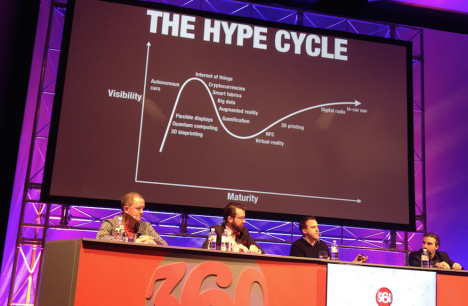Cult of failure borrowed from startup world is ‘idiotic’ in marketing context says tech panel
A panel of agency executives and technologists has described as “idiotic” the current vogue in marketing circles – borrowed from the startup world – to use language that celebrates failure.
The “cult of failure” now prevalent in Silicon Valley is not helpful for advertising agencies with paying clients, it emerged from the Mumbrella360 conference panel titled ‘Post hype’.
“‘Fail fast’ is a phrase we’ve taken from the startup world, but clients don’t like us failing on their dime,” said Dave King, founder of independent ad agency The Royals, on the topic of startup language such as “prototyping” and “fail fast” creeping into marketing lexicon.


